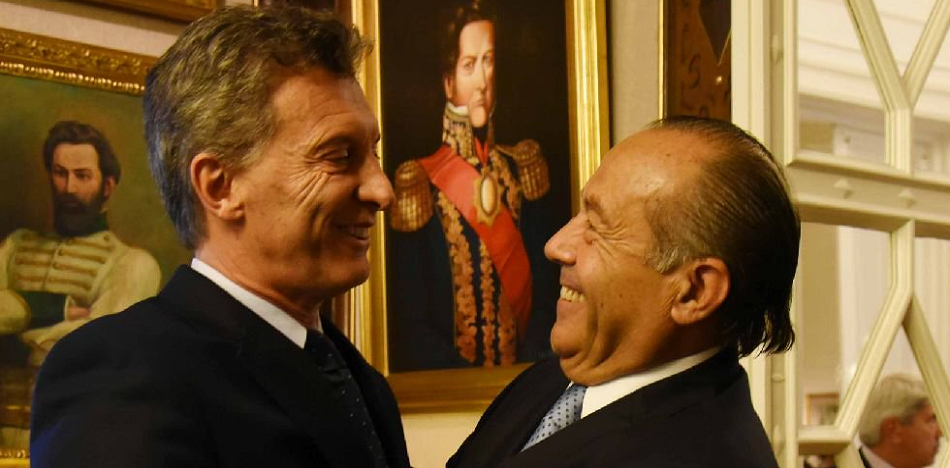
The Argentine ruling party, led by Mauricio Macri, recently renamed itself Juntos por el Cambio or “Together for Change.” It is exponentially increasing its Peronist base. The Peronists are the supporters of the principles and policies of former Argentine president Juan Peron. The confirmation to the Senate of Miguel Angel Pichetto, former head of the Justicialist Party, was the catalyst for Macrist “peronization” process. All the highest Kirchnerist authorities in Congress for 12 years made a promise to join Macri’s space: “Many Peronist leaders will accompany this proposal.” That is coming true for now.
After Miguel Angel Pichetto joined Macrismo as vice-presidential running mate, the president obtained four important supports in the Senate: Carlos Reutemann, Lucia Crexell, Carlos Espinola and former president Carlos Saúl Menem, who did not hesitate to support Macri’s presidential candidacy. But Pichetto continues to add demands, and in the last few hours, he reached an agreement with Adolfo Rodríguez Saa from Puntano. There has already been a photo and everything. The Peronist senator has his seat secured until 2023 since he was elected for the last time in the mid-term of 2017. He has occupied his space in the Upper House since 2005 without interruptions.
Lights and shadows of Macrist Peronization
The increased political support base is undoubtedly good news for Macri. The increased number of legislators and leaders across the country moves Macri away from the reputation of having the weakest democratic government. The situation had become less of a problem and more of an excuse for the ruling party.
However, the discourse of “change and renewal” of politics is practically buried. Now that Macrismo has the most crucial Kirchnerist legislator in its own ranks, it can no longer claim to pedal ‘new politics.’
It is also fair to recognize that without these new players, without the support of governors, and without increasing the number of parliamentarians, it is tough to implement substantive reforms. Cambiemos, with more Peronism in its ranks, has more significant support. Now, it has no excuses for not promoting the necessary reforms for the country as soon as possible. The peronization of the official front comes too close to the elections to expect anything different in these months. But if Macri is reelected, he must face, from day one, the significant operations he avoided during these four years, and which severely aggravated Argentina’s economic crisis.
 Versión Español
Versión Español













